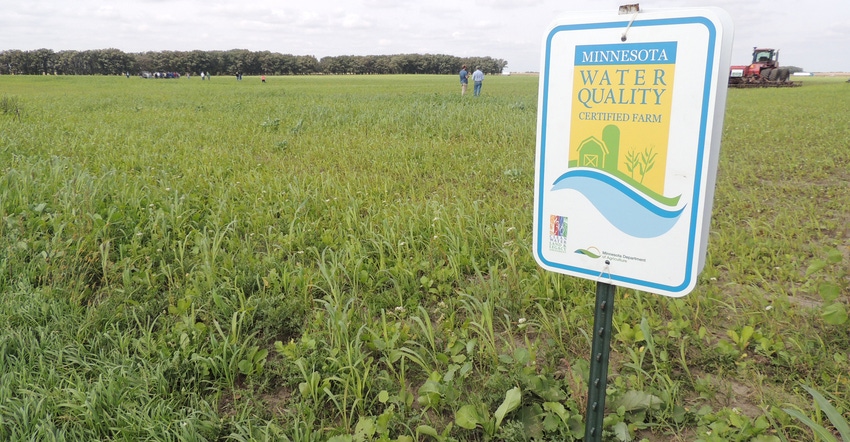
Minnesota’s conservation partners have a renewed opportunity to work together on future projects with funding available through USDA Natural Resources Conservation Service’s Regional Conservation Partnership Program.
Through RCPP’s Alternative Funding Arrangements (AFA), NRCS will invest up to $50 million in a maximum of 15 projects nationwide. With this new alternative funding format, conservation partners will be given more leeway to manage their RCPP projects and relationships with participating producers and landowners.
“We hope some Minnesota conservation partners will strongly look at this,” says Troy Daniell, NRCS state conservationist. “Our effort [as an agency] will be minimal. It’s almost like getting a grant. It’s a good opportunity for organizations, watershed districts, state agencies, tribes and soil and water conservation districts.”
NRCS will execute the funding arrangements through agreements with eligible lead partners. Lead partners will be responsible for contracting directly with eligible producers and landowners to implement conservation activities on the ground.
Daniell says he is expecting two to three projects to come from Minnesota.
RCPP projects in the past have ranged from a minimum of $250,000 to a maximum of $10 million.
The 2018 Farm Bill made a few changes to RCPP, including making it a stand-alone program with its own funding — $300 million annually. Through AFAs, approved project partners can work directly with farmers, ranchers and private forest landowners to carry out RCPP projects, as opposed to implementing projects through NRCS producer contracts and landowner easements.
The farm bill statute highlights some project types that may be particularly suited to AFAs:
Projects that use innovative approaches to leverage the federal investment in conservation
Projects that deploy a pay-for-performance conservation approach
Projects that seek large-scale infrastructure investment that generate conservation benefits for agricultural producers and nonindustrial private forest owners
Go online to learn more information on the RCPP program and how to apply.
About the Author(s)
You May Also Like






